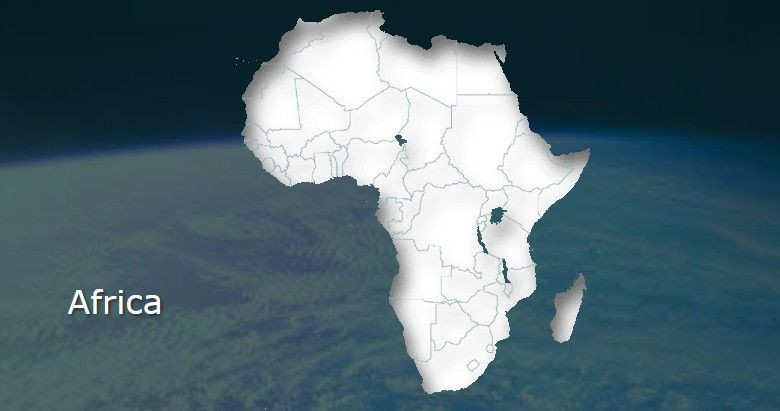
In line with the Paris Agreement of reducing carbon emissions and also supporting the global efforts to raise ambitions through the Nationally Determined Contributions (NDCs), are developing countries ready for the realisation of the Net-Zero transition?
For the majority of developing countries, realising the Net-Zero carbon budget is going to be a tough process and not just an event.
Although setting targets has never been a point of success globally, many countries have to be seen either talking about the targets or actually doing it anyhow, some with the aim of accessing international green funding.
In this regard, everybody wants to be seen to be relevant and seemingly conforming. Being able to control greenhouse gas emissions and live low carbon lives would mean some countries will have to forgo certain necessities and make tough choices.
Many countries would falter in this regard, as they have not been known for making tough decisions for the good of their people and economies, but only for making tough decisions for oppressing their people.
Indeed, it would be significant for developing countries to be seen engaging their communities on anti-emission pathways in setting out carbon budgets, which would include evidence-based initiatives for accountability purposes, bottom-up approaches that are sufficiently engaging, tolerant and accommodating, or whole economy approaches, among others, would be most appropriate.
All these are ingredient pathways towards the realisation of low-carbon economies or rather Net-Zero energy transitions.
Deep public engagement is required for companies, businesses and communities to work strongly towards these resilient and mitigation efforts.
- Chamisa under fire over US$120K donation
- Mavhunga puts DeMbare into Chibuku quarterfinals
- Pension funds bet on Cabora Bassa oilfields
- Councils defy govt fire tender directive
Keep Reading
Multi-stakeholder and sectoral approaches would be required to foreground the activities of the energy-power sector, buildings, industries, transport, agriculture and waste management, among others.
These sectors are well known for accelerating carbon emissions and greenhouse gases that contribute to global warming.
In order to manage these sectors, and make them sufficiently compliant, issues like economic impacts of the country, energy poverty and health issues like COVID-19 would have to be addressed for a smooth transition to take place.
Many developing nations are of the view that they cannot realise the Net-Zero energy transition without funding from the International Climate Finance/Green Climate Fund.
This notion would always incapacitate them as not being able to participate in climate action strategies with any foreign interventions.
Obviously this takes out the overall steam and intrinsic motivation which locals might have in attempts to fight the impact of climate change.
Of course, technical assistance to developing countries is required due to their lack of capacities to fight the impact of climate change, but that doesn’t stop them from making their own local arrangements or home-grown solutions towards addressing climate change.
This is important in reducing the entrenched begging syndrome which has mostly left local communities vulnerable and disempowered.
The ambitious path taken by developing countries through NDCs is one way to complement the Paris Agreement, but these should not just be ambitious without appropriate mitigations for sustainable clean energy development.
If many developing countries could establish their own local financial repositories or incentives to combat greenhouse gas emissions, that would be instrumental and a milestone achievement.
Where the green finances come from, they are also reeling under the strain of the COVID-19 pandemic, hence finances would have to be split into two in order to fight both COVID-19 and climate change.
In this regard, the anticipated finances may not be urgently available in developing countries.
In whatever manner the countries choose to plan their finances, they need to do that with Net-Zero transition in mind. Individuals also have a role to play in changing their mindsets and behaviours too.
With the lessons learnt from devastating effects of COVID-19, it is now possible that individuals can sufficiently change their behaviours. The COVID-19 pandemic has provided a ruthless learning curve which has left people cornered and forced to conform with and abide by the new normal.
Human preparedness is also required in climate change adaptation and mitigation. People are now more adaptive than they were before the pandemic struck and can be positively tuned to realise the Net-Zero energy targets.
The other problematic factor is how developing countries are going to manage shortages of land, where land is being exploited for mining, agriculture, building new settlements, rearing cattle and managing waste, among others.
It is from various aspects of land use that the bulk of carbon emissions are being realised. Managing diet is another scenario, and one of the most difficult things to do, especially in developing countries where food choices are just but limited.
Meat is still considered a vital food source and a favourite of many in developed and developing countries.
Many people are also not yet ready to cycle or walk, but still crave for carbon-emitting second-hand vehicles from Asia and other developed nations. Quite many still use the forests and biomass for cooking due to inherent energy poverty.
To fight carbon emissions and realise Net-Zero targets, countries need to invest in research, skills development, and create growth for jobs, among others.
The private sector should not be anti-communities, but should help communities participate sustainably in Net-Zero emission targets.
In this regard, communities should be assisted so that they know the paths, and not the end. The role of local authorities in service delivery towards Net-Zero emissions targets should be supported.











